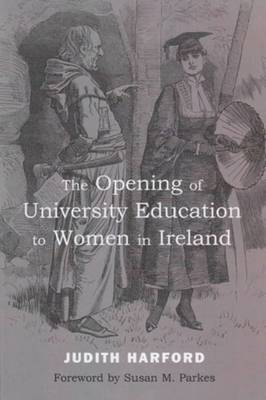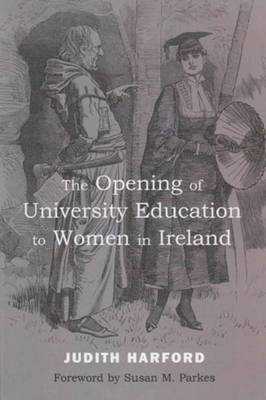
- Afhalen na 1 uur in een winkel met voorraad
- Gratis thuislevering in België vanaf € 30
- Ruim aanbod met 7 miljoen producten
- Afhalen na 1 uur in een winkel met voorraad
- Gratis thuislevering in België vanaf € 30
- Ruim aanbod met 7 miljoen producten
Zoeken
€ 90,95
+ 181 punten
Omschrijving
This book examines the opening of university education to women in Ireland, locating the discussion within the wider social, political and cultural context of nineteenth century Irish society and within international developments in the reform of higher education for women. It looks at the state of education for females at the beginning of the nineteenth-century, the emergence of a reform movement, arguments for and against higher education for women, and the impact of higher educational provision on the role of women in Irish society. It offers for the first time a comprehensive analysis of the role and significance of women's colleges, which emerged from the 1850s in response to women's collective desire to access higher education and their exclusion from universities. The origins of these colleges, the kind of education they offered women, and the difference such an education made to women's career prospects are all considered. The book documents the differences between the Protestant and Catholic women's colleges and the rivalry which developed between them, spurred on by the public nature of the competitive examination process. Finally, it analyses the ideological arguments behind providing women with an education in an exclusively female domain and granting them full and equal access to the universities under the co-educational model.
Specificaties
Betrokkenen
- Auteur(s):
- Uitgeverij:
Inhoud
- Aantal bladzijden:
- 194
- Taal:
- Engels
Eigenschappen
- Productcode (EAN):
- 9780716528548
- Verschijningsdatum:
- 1/01/2008
- Uitvoering:
- Hardcover
- Formaat:
- Genaaid
- Afmetingen:
- 159 mm x 235 mm
- Gewicht:
- 476 g

Alleen bij Standaard Boekhandel
+ 181 punten op je klantenkaart van Standaard Boekhandel
Beoordelingen
We publiceren alleen reviews die voldoen aan de voorwaarden voor reviews. Bekijk onze voorwaarden voor reviews.











